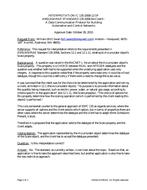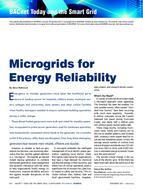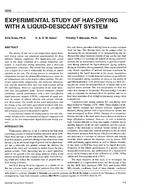Click here to purchase
Different types of phase-change materials (PCMs) have been tested as dynamic components in buildings during the last four decades. Most historical studies have found that PCMs enhance building energy performance. Some PCM-enhanced building materials, like PCM-gypsum boards or PCM-impregnated concretes, have already found limited applications in different countries. Today, continued improvements in building envelope technologies suggest that throughout southern and central US climates, residences may soon be routinely constructed with PCM in order to maximize insulation effectiveness and maintain low heating and cooling loads. This paper presents experimental and numerical results from thermal performance studies. These studies focus on blown fiberglass insulation modified with a novel spray-applied microencapsulated PCM. Experimental results are reported for both laboratory-scale and full-sized building elements tested in the field. In order to confirm theoretical predictions, PCMenhanced fiberglass insulation was evaluated in a guarded hot-box facility to demonstrate heat flow reductions when one side of a test wall is subjected to a temperature increase. The laboratory work showed reductions in heat flow of 30% due to the presence of approximately 20 wt % PCM in the insulation. Field testing of residential attics insulated with blown fiberglass and PCM was completed in Oak Ridge, Tennessee. Experimental work was followed by detailed whole building EnergyPlus simulations in order to generate energy performance data for different US climates. In addition, a series of numerical simulations and field experiments demonstrated a potential for application of a novel PCM fiberglass insulation as enabling technology to be used during the attic thermal renovations.
Citation: Thermal Performance, International Conference, 2010
Product Details
- Published:
- 2010
- Number of Pages:
- 13
- File Size:
- 1 file , 4.6 MB
- Product Code(s):
- D-BUILDINGSXI-198


